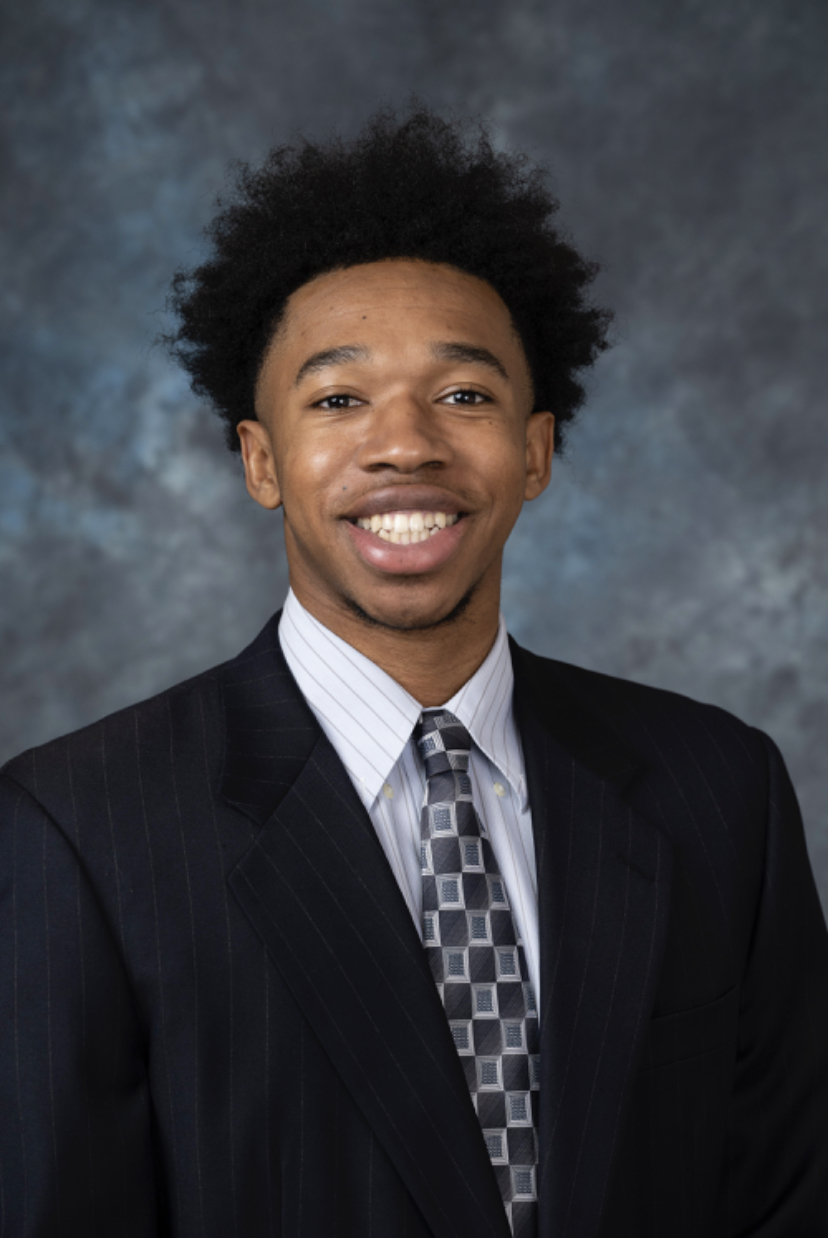Student-Athlete Leader
Basketball recruiters lured Ethan Bartlett to Johns Hopkins from White Plains, NY, in 2018, but it was the academic challenge and the opportunity to be a true student athlete that sealed the deal. “Blacks make up only about five percent of the student-athlete population at Hopkins,” he explained. “My coaches have been super supportive. They’ve been helpful in supporting me when I spoke up about things that I thought were important.”
In the summer of 2020, just after the murder of George Floyd, the Athletics Department held an online meeting where coaches and administrators invited Black student athletes to share how they were feeling. “People talked about microaggressions they’ve experienced in Hopkins institutions. We saw the need to create a space where people could speak to that aspect of their identities, things they might not have felt comfortable discussing with their teammates or coaches,” Bartlett said, describing some of the reasons he and his colleagues founded the Black Student-Athlete Association.
“Hopkins can be overwhelming,” he admits. “It can be difficult to figure out what fits your interests. The BSAA has helped, creating that pathway, getting people connected to resources and volunteering opportunities.” The group has formed a partnership to tutor high school students who fell behind during the pandemic. Leveraging their positions as student athletes allows members to make a strong impression. “We taught a virtual lesson to fifth graders about social justice and activism within sport. It was awesome. They were very engaged and had a bunch of amazing questions.” The organization has hosted both virtual and live “literacy events” where Hopkins professors discuss issues such as housing and homelessness, police violence, and education. A particular mentor for Bartlett, Professor Lawrence Jackson, led a session on the history of Baltimore and Johns Hopkins University’s place in that narrative.
Having a roommate (and teammate) from Baltimore for four years gave Bartlett an insider’s view of the city. “People have a lot of misconceptions about Baltimore. While there are areas that are unsafe, they aren’t an accurate representation of the entire city,” he explained. “Baltimore has so much to offer. There are vibrant, creative people here, people who are resilient.”
Bartlett majored in public health and minored in entrepreneurship and management, graduating in December 2021. “My interest is the intersection between gun violence and law enforcement,” he explained. A tragedy involving a family friend killed by police sparked Bartlett’s concern when the officers involved were not convicted. “I’ve watched this unfold for the greater part of my life. That’s been the inspiration for my academic path. I want to reform police systems, and qualified immunity. Its origins are tied to slavery. There are so many problems—you need to overhaul the entire system.” Bartlett realized he needed to sharpen his leadership skills so he enrolled in a course titled “Leading Teams.” At its conclusion, the professor offered him a teaching assistantship for the next term, a position he still holds as a graduate student.
The opportunity to pursue a master’s degree at the Bloomberg School of Public Health, home of the Johns Hopkins Center for Gun Violence Prevention and Policy—combined with the chance to continue playing basketball for Hopkins—provided obvious incentives to remain in Baltimore. “People are at different stages of their lives in graduate school,” Bartlett said. “Some are starting second careers; some are already working in the field and are getting their degrees while they work. You learn so much from their lived experiences.”
